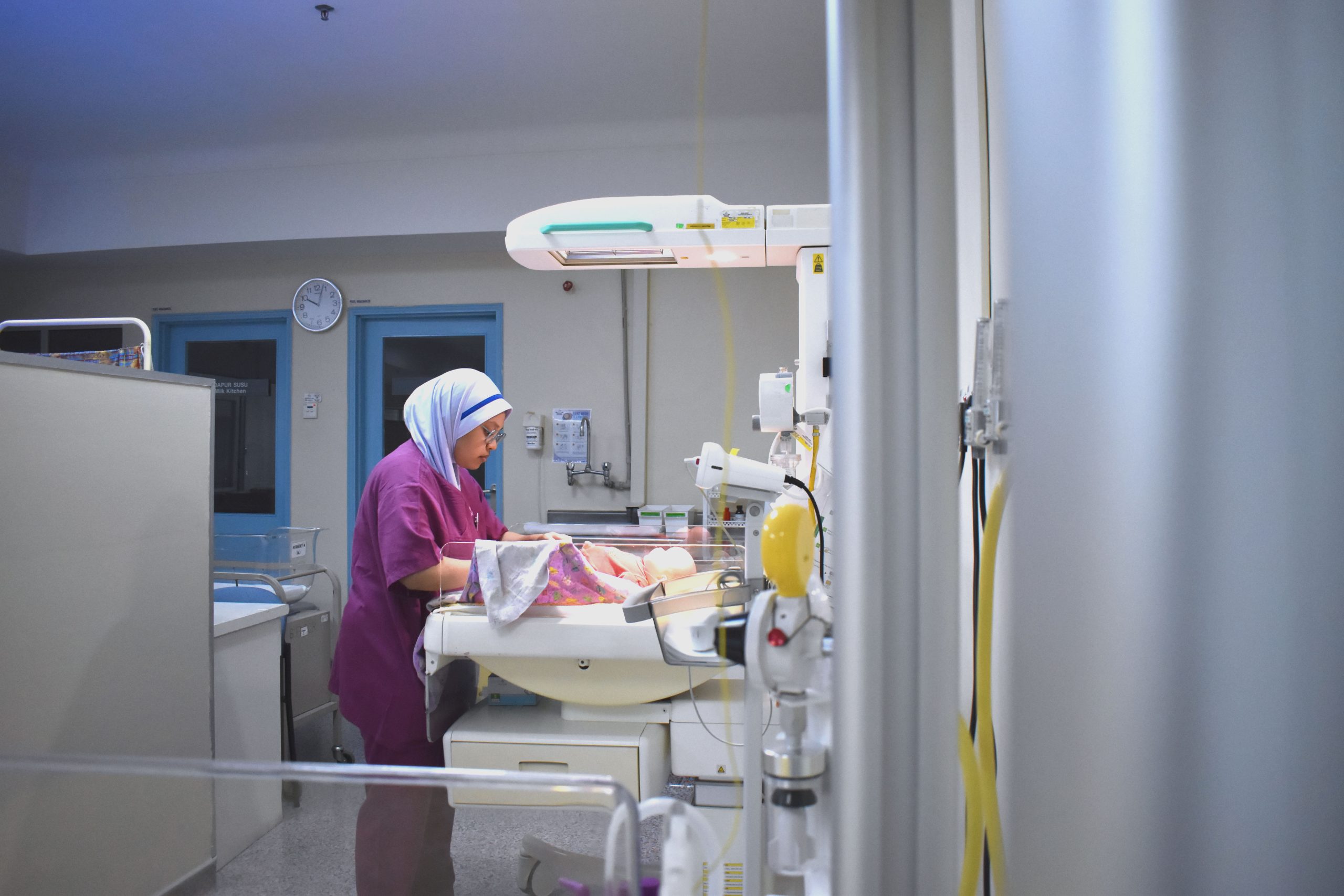
Baby Incubator: Understanding Features, Uses and Benefits
Having a baby is a joyful moment for every parent. But sometimes, newborns need a little extra care, especially if they are born early or with certain health conditions. This is where a baby incubator becomes essential.
At Putra Melaka Hospital, one of the trusted maternity hospital in Malaysia, newborns receive specialized care using advanced baby incubator to help them grow stronger during their early days of life.
What Is a Baby Incubator?
A baby incubator is a medical device used in hospitals to support the care of newborns, especially those born prematurely or with medical issues. It is a sealed, clear box that provides a controlled and safe environment for a baby.
This equipment protects the baby from cold, gems, noise, and other external factors. It keeps the baby warm and stable while doctors and nurses monitor their growth and health closely.
Why Are Incubator Baby Important?
Some babies are born before 37 weeks of pregnancy and are considered preterm or premature. These babies may not be fully developed, especially in terms of lungs, body temperature control, and immune system. A baby incubator helps by providing:
- Stable temperature to prevent hypothermia
- Oxygen supply for babies with breathing difficulties
- Protection from infections and germs
- Controlled humidity to keep their skin moist and healthy
This is why infant incubators are often found in the Neonatal Intensive Care Unit (NICU) of a maternity hospital.
When Is a Baby Incubator Needed?
1. Premature Birth
If a baby is born early, their body is not fully ready to survive outside the womb. An incubator keeps them warm and helps their organs develop in a safe place.
2. Low Birth Weight
Babies who weigh less than 2.5 kilograms (5.5 pounds) may have trouble staying warm or fighting off infections. A baby incubator offers the right environment for healthy weight gain.
3. Breathing Problems
Some newborns may have underdeveloped lungs and need help breathing. The incubator may come with built-in oxygen supply or support from a ventilator.
4. Infection or Jaundice
Incubators are also used when babies are sick or recovering from medical conditions. For example, babies with jaundice might receive phototherapy while staying in the incubator.
5. Surgery Recovery
If a newborn has had surgery or needs treatment for a condition, they are placed in an incubator for better recovery and close monitoring.
Types of Infant Incubators
1. Closed Incubator
This is the most common type. It’s a transparent, closed box that allows full control over temperature, humidity, and oxygen levels.
2. Open Incubator (Radiant Warmer)
An open incubator is open on top but provides warmth from a heating lamp above. It allows easier access to the baby but less protection from outside conditions.
3. Transport Incubator
This is a portable incubator used when a baby needs to be moved from one place to another within the hospital or between hospitals.
4. Double-Walled Incubator
This model provides better insulation by having two walls, reducing heat loss and maintaining a more stable environment.
Key Features of a Baby Incubator
- Temperature Control: Keeps the baby warm and adjusts automatically based on the baby’s body temperature.
- Humidity Control: Prevents the baby’s skin from drying out, especially in premature babies.
- Oxygen Supply: Helps babies who need extra support with breathing.
- Monitoring Systems: Measures heart rate, breathing, oxygen levels, and temperature in real-time.
- Alarms: Alerts nurses if any reading goes out of the normal range.
Benefits of Incubator Baby
1. Improved Survival Rates
One of the biggest benefits of using an incubator is the higher chance of survival for premature and sick babies. It offers life-saving support during their most critical moments.
2. Better Development
Inside an incubator, babies are kept in an environment that mimics the womb. This helps their organs and systems to continue developing naturally.
3. 24/7 Monitoring
With built-in monitoring tools, nurses and doctors can watch over the baby round the clock and respond quickly to any health changes.
4. Reduces Risk of Infection
A closed incubator provides a clean space, reducing the chance of germs from the outside environment. This is especially important for babies with weak immune systems.
5. Family Peace of Mind
Parents feel more at ease knowing their child is in a safe, monitored environment. This reduces stress during a very emotional time.
Safety Features
1. Power Failure Alert
Most modern incubators include systems that notify caregivers right away if there is a power outage, helping to keep the baby safe at all times.
2. Access Control
Certain incubators have sealable access points to keep the environment stable and prevent any unwanted access or disturbance.
3. Non-Contact Sensing
High-tech incubators use sensors that monitor the baby’s vital signs without touching them. This lowers the risk of infection and gives accurate results.
4. Volatile Substance Removal
Some incubators are built to filter out harmful substances from the air, protecting the baby from breathing in dangerous fumes.
Conclusion
A is more than just a medical device. It’s a life-saving tool that gives fragile babies a second chance. From maintaining body warmth to providing oxygen and protection, incubators are essential in any maternity hospital, especially for incubator baby born early or with health concerns.
If your newborn ever needs the support of a baby incubator, know that you’re not alone. Facilities like Putra Melaka Hospital are here to provide world-class care, ensuring your baby receives the safest and most advanced treatment possible.

